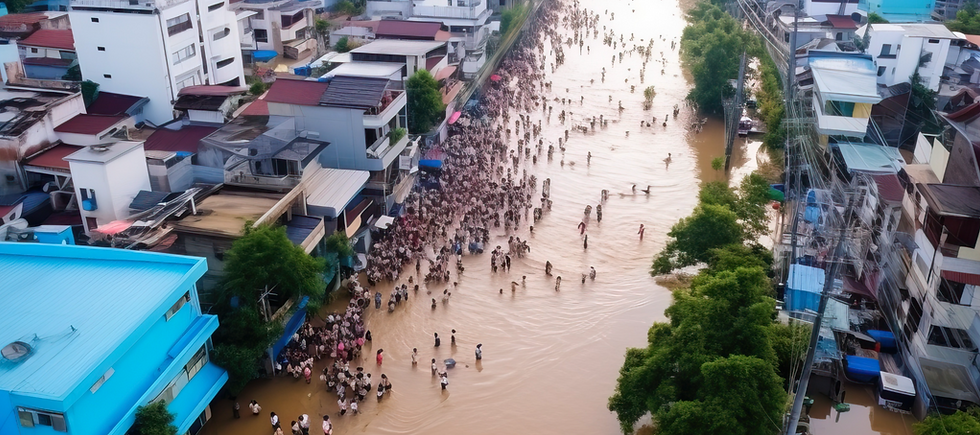_edited.png)
ISNTD Climate & Health
Climate change, tropical diseases and global health
23 October 2025
Online conference
#ISNTDClimate
#beatNTDs
From Climate Signals to Health Systems: A New Era for Infectious and Tropical Diseases
Welcome to our annual ISNTD Climate & Health conference scheduled for Oct 23rd 2025, taking a closer look at the linkages between climate, infectious diseases (with a focus on Neglected Tropical Diseases) and global health resilience.
Presentations & panel discussions run across the day, covering the sessions and topics below. The event is free to attend. Please use the form on this page to book your place and receive the connection links.
Thank you for your participation!
Programme
-
Research & Data Updates on Climate Impact on NTDs
-
From Data to Action: Integrating Climate Intelligence into NTD Surveillance
-
Policy for a Warmer World: Financing and Governance for Climate-Linked NTDs
-
Climate Resilience in NTD-Endemic Communities: Local Solutions, Global Lessons
-
Heat, Humidity, and Vectors: Climate Change and the Expanding Geography of NTDs
-
Which Role for the Private Sector in Climate x Health for Tropical Diseases
9.30-11.00 UTC | Climate sensitivity of infectious diseases: new paradigms for infectious diseases & health systems
Identifying the climate sensitivity of infectious diseases: a conceptual framework
Prof Rachel Lowe (ICREA Research Professor and Global Health Resilience Group Leader, Barcelona Supercomputing Centre)
Climate Shocks as a Growing Pediatric Health Emergency in Pakistan: A Call to Action
Dr Zainab Hafeez (Department of Pediatrics, Nishtar Medical University and Hospital, Pakistan)
Building Climate Resilience in Health Systems: A Climate Vulnerability and Capacity Assessment in a rural hospital in Chad
Alexandre Robert (Senior Health Project Manager, Climate Action Accelerator)
Knowledge and beliefs about climate change and emerging infectious diseases in Bangladesh: implications for a One Health approach
Dr Siddikur Rahman (Department of Statistics, Begum Rokeya University, Bangladesh)
Bridging communities of practice: lessons from the Humanitarian Health Research Forum on climate, crisis and collaboration
Dr Carrie Ngongo (Clinical Associate Professor, Department of Global Health, University of Washington)
11.15-11.45 UTC | Collective discussion forum: what is needed to accelerate climate & health integration?
-
Open discussion: join and share your thoughts, questions or insights in this open and collegial forum for a collective brainstorm and discussion - all from every discipline and at every experience level welcome!
12.00-13.15 UTC | Climate Resilience in Tropical Disease-Endemic Communities: Local Solutions, Global Lessons
From local action to global advocacy in climate & health
Mara Scherner (Advocacy Officer for Global Health R&D, DSW)
Community-led initiatives to address health challenges posed by climate change: the Local Solutions Campus
Daouda Diouf (Head of Climate Action and Health Resilience, Foundation S The Sanofi Collective)
Neglected Tropical Diseases R&D at the Crossroads of Climate and Health
Rittika Datta (Policy Advocacy Manager, Drugs for Neglected Diseases initiative, DNDi)
Reporting from the Margins: Telling the Climate–Health Story from the Ground Up
Soraya Aybar Laafou (Director at África Mundi)
13.30-15.00 UTC | From Data to Action: Integrating Climate Intelligence into Disease and Vectors Surveillance
Seasonality and mycobacterial infectious diseases in animals and humans: is there a generality of seasonal patterns for mycobacterial infections?
Carlos A. Vargas Campos (PhD Candidate, Clinical Medicine & Public Health, University of Granada, Spain)
Climate change and its impact on spatial and temporal distribution of visceral leishmaniasis transmission risk in Nepal
Dr Bipin Kumar Acharya (Research Fellow, Planetary Health Research Centre, Kathmandu, Nepal)
Bridging ecology and public health: the scientific and policy value of integrated decision tools
Dr Váleri Vásquez (Postdoctoral Scholar, Department of Biology and Center for International Security and Cooperation, Stanford University)
Risk assessment and mitigation evaluation of future yellow fever outbreaks under different climate scenarios: Insight from a case study of Brazil
Dr Marco Tosato (Laboratory for Industrial and Applied Mathematics, Department of Mathematics and Statistics, York University, Canada)
Mosquito Vector Range Shifts: Widespread Expansions and Evidence Gaps in Climate Attribution
Dr Kelsey Lyberger (Assistant Professor, CISA School of Applied Sciences and Arts; Arizona State University)
The International Society for Neglected Tropical Diseases




